Acted for me since 1998. Great ability to look at the bigger picture and always with my interests uppermost. Well connected and typically brings other professionals in to the advice process

Digital Estate Planning
20,451
Property Professional LinkedIn connections
77
Years combined wealth tax experience
100%
Compliance with legislation
Your Digital Legacy is the footprint you’re leaving online, and it’s growing every day..
Just try typing your own name into Google to see how much information is available about YOU online
Your real life and your digital life, become more entwined every day, and it’s vital you have a plan for your Digital Estate when you die
That way, all your digital accounts and services can be managed, deleted or transferred to someone you trust, after you have gone
Planning your digital demise is about a series of unglamorous decisions around deleting your Facebook, Twitter and Netflix accounts; protecting your email against hackers, allowing family to download photos from your cloud, and ensuring your digital secrets remain hidden in their digital alcoves, and much more
Check out season 2, episode 1, of Black Mirror (on Netflix) if you need any convincing
Anyone who believes that people should have the right to control what happens to their personal data and online identities when they die, need to know that the Data Protection Act 2018 defines ‘personal data’ as relating only to ‘living people‘..!
You need to create your Digital Estate Plan, and appoint a Digital Executor, to whom you provide guidance and direction about what you want done with your digital assets and online presence when you die
Your Digital Executor needs to know whether to close, or memorialise your social media accounts, and how to deal with your devices and online accounts and services. They need to ensure that money held in accounts is recovered, and what about your online businesses and websites, and more, plenty more..
So, let’s unpack this, because if you don’t make decisions about your digital demise, then someone else will be making them for you.!
What is a Digital Estate?
Well, just about everyone has one and most of us are digital hoarders
Details vary but, broadly, there are two parts; Information Technology (IT) and Online Accounts and Services
IT includes computers, phones, tablets, cameras, security and other digital devices
Online accounts include email, social media, entertaining, shopping and all the accounts you use in your day to day life. Think Amazon, Apple, Facebook, Google, Microsoft and plenty more
You may want some things to be passed on to your loved ones, and others to disappear


Dealing with your digital afterlife
It’s naïve to think that our online lives die with us. It causes endless complications for loved ones, particularly when they don’t have access to your passwords
The problem is that it’s practically impossible for your family to manage your Digital Estate if they don’t know what you have, and what you want done with it.!
So what can be done.?
Well, it’s a simple choice between allowing your relatives access to your accounts, or letting social media corporations use your data indefinitely after your death
Your goal should be, to provide for your loved ones, the best possible route-map forward when you are no longer around to guide them
For most people, it means mapping your digital existence, with focus on passwords, money and property
Here are more reasons to be fearful, parts one, two and three:
Passwords
We’re talking about anything you use to protect your assets, information, property and systems
We mean PIN numbers, codes, combinations, user-names, passwords and answers to ‘secret questions’. Seems most people just memorise them, or rely on facial recognition or biometric tech, but all of that dies with you. You need to decide on your digital executor, perhaps a trusted relative or close friend
Just think about it. Access to your passwords means your family can instantly access vital digital services (email and phone are two of the most obvious) without having to go through a legal process and, maybe, still not ending up with them
A well-briefed digital executor means your family can access all the codes and combinations they need to maintain online accounts, or close them. They can delete ‘stuff’ (browser history, texts, memberships, profiles, diaries, blogs, hard-drive, photos?) from your computer, or erase the hard drive, and inform your online communities of your passing
The ‘oven ready’ solution is to use a digital Password Manager.
Password Managers use random secure passwords. They make sure you don’t re-use passwords, and allow you to safely and securely share passwords. If you’re not already using Password Manager software then maybe it’s time to grab a coffee, and a mirror, and have a serious discussion!
All you have to do is remember a single master password to access them all. It makes your life easier and it’s a real gift for your family
Money
Typically, people have different types of money and assets scattered all over the place
Ask yourself, ‘who, apart from you, knows to the last £100, where your assets are right now.?’
We’re not talking about sensitive information, like amounts or values
We’re talking about a list of all your money and valuable assets, and your income and outgoings, preferably on a spreadsheet
You could put them all on a secure Financial Aggregation Tool, where you can gather all of your assets in one place, without having to log on to individual sites separately
It’s simple to do; you create your account, and connect all the accounts and assets you want to track, and it all appears on your own personal dashboard
Even a paper list is better than nothing
Property
Like every other aspect of your life, your home doesn’t run by itself, and things have to stay operational when you’re not there to do it
Your home requires care, and maintenance, and you know all that ‘stuff’, but what will everyone else do without you.?
Think about email addresses, log-ins, usernames and passwords for electricity, gas, water, phone, internet, security system, safe, swimming pool maintenance, and more
You need to <strong>enable another family member</strong> to <strong>step into yours shoes</strong> to seamlessly <strong>keep the home running</strong>. They’ll need to <strong>know who to call</strong> if something <strong>needs fixing</strong>, or the alarm won’t stop, or the internet broke, and plenty more
Next Steps
Some say, ‘nothing is impossible’. Others contradict that, by doing nothing every day
You could just do nothing, but isn’t it better to leave a light on for your family.? Technology can’t deliver empathy but it sure can be helpful..
‘There is a voice that doesn’t use words. Listen!’ as Rumi said
It’s your call – you only get one chance to make a last impression.!
What our clients say
Patrick Trant, Chairman, Trant Engineering Ltd
5/5
I have been a client for more than 10 years throughout which time I have found them to be professional and competent, operating as part of a team with a wide knowledge of tax and related planning. They put my interests first and are particularly good at explaining technical subject matter in a straightforward way
Anthony Mowatt, Chairman, Keystone Legal Ltd
5/5
In almost twenty years of working for us they have acted with honesty and integrity as one of our trusted advisers. We are always treated as important and nothing is too much trouble
John Reilly, Managing Director, John Reilly (Civil Engineering) Ltd
5/5
Worked for me for more than 15 years on a variety of projects, large and small. They are particularly adept at using applied knowledge and expertise to work with their network of professionals to deliver my goals. I have found them very easy to work with and happily recommend them to others
John Clark, Managing Director, T Clark & Son Ltd
5/5
Having been a client for around 20 years, they have assisted us many times, always putting our interests first. They have always acted with honesty and integrity. With a wide network of professionals an answer is always found to whatever problem has been presented to them.
Richard Mancey, Managing Director, Paultons Park Ltd
5/5
In almost twenty years of working for us they have acted with honesty and integrity as one of our trusted advisers. We are always treated as important and nothing is too much trouble
John Reilly, Managing Director, John Reilly (Civil Engineering) Ltd
5/5
Clients we work with








Next Steps
Here's What You Likely Will Do:
Jump back on Google, search ‘Legacy Planning’ or ‘Inheritance Tax Planning’, procrastinate, get busy, get side-tracked, do the square root of not much, and hope your existing advisor gets cleverer before you die..
Here's what you must do:
Listen, really listen, to Stairway to Heaven by Led Zeppelin HERE then..
Book a FREE legacy planning hour, directly with the piper, right NOW
Remember:
The Will of one affects the lives of many






 by Atomic
by Atomic